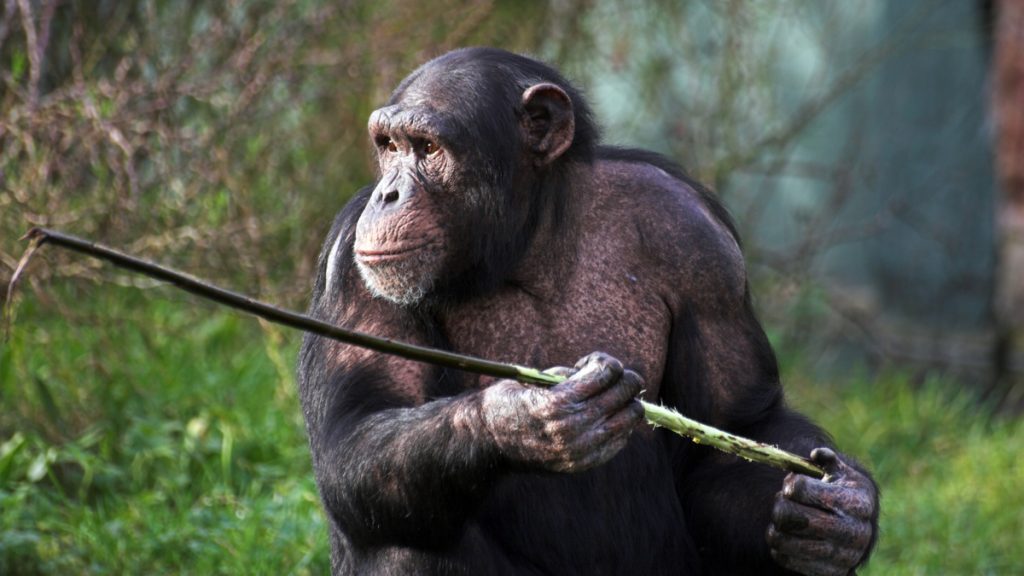The question about the future of planet Earth includes at the same time that of its inhabitants, that is to say us human beings, without forgetting the animal and vegetable kingdom. It is obvious that our species is the main player in life on earth. Human intelligence is constantly looking for ways to improve the lifestyle, but how many times has it led Man to the limit of his loss apart from natural disasters? The disappearance of humans is a subject of increasing interest to scientists around the world. And if that were to happen, they wondered more what animals would have the ability to undergo evolution and pick up where humans left off?
Which animals could then evolve in order to perpetuate the development of the Earth?
First, one of the main criteria for contributing to the development and evolution of a species on Earth is above all its ability to manipulate objects. The principle here is to be able to develop skills in construction, but also to be able to continue the responsibility of Man, which is to continually improve the ecological situation, by making changes to the environment. This function depends particularly on the morphology of a given breed. It is specified by an opposition of thumbs (opposing thumbs), at least members equivalent to these. An ability that takes us directly to primates. The Pan troglodytes (scientific name) or chimpanzees, their most common name, just like bonobos (pan paniscus), have already developed opposing thumbs that allow them to make tools necessary for survival in their natural environment. This statement suggests that the film The Planet of the Apes is actually one of the fictions that would help us to envision the future of our race.
However, as we report Livescience, it will take hundreds of thousands of years to millions of years before apes can develop the knowledge required to make tools as powerful and as elaborate as those made by humans. Furthermore, the researchers state that a high-intensity phenomenon is largely capable of suppressing chimpanzees. This leaves room for another specimen, the descendants of dinosaurs, for example, are birds. Do not be fooled by the light and fragile appearances of these feathered animals. Some of these animals have an intelligence that would surprise more than one.
Crows, for example, possess traits similar to humans: they are curious, rebellious, and anticipatory. Their intellectual level competes directly with that of chimpanzees and bonobos according to an article published in the journal Science. Most birds are skilful with their feet and beaks to build community nests. The african parrots are able to memorize a hundred words and perform simple algebraic operations.
Apart from birds, however, there is another form of intelligence equivalent to that of humans. Not only is this species renowned for its disposition to distinguish a real object from a virtual object due to the same optical configuration as humans, but she additionally possesses the potential to be effective with her eight limbs. Octopuses, from the cephalopod family, are extremely clever creatures. Unfortunately, their inability to live out of water is a huge factor. We can also consider the robustness of insects because they are naturally more resistant than human beings in any type of environment. Especially since they have an effective communication strategy by sending vibrations, even over long distances, like termites. Ant colonies are the very reference of cohesion and organization. It could well be that the Earth is the cradle of a civilization of colonies of insects, provided they survive the climate change that threatens the planet.
What are the reasons that lead to believe that the human species would be likely to face its extinction?
Whether they know it or not, humans are constantly exposed to risks that could be fatal to them. Mathematicians, astrophysicists and psychologists have already looked into the possibility of catastrophes that could lead to the decline of Man. Research is only an estimate, as the cataclysm data in hand is still insufficient to accurately address the issue. On the other hand, the hypotheses relate to nuclear explosions, a new pandemic, the impact of a gigantic asteroid or the eruption of a super-volcano.

However, personalities like the philosopher John A. Leslie have already shared their impressions. According to him, the probability of the extinction of humanity in the next five centuries would amount to 30%. On the other hand, astronomer Martin Rees claims that there is a 50% chance that an event will send humanity back to prehistory in the next century. The question of climate change is one of the issues that humans will still have to face because in 2006, the British Parliament estimated the probability of human extinction at 0.1% per year, from an article in Science & Vie.
Much like theories about the annihilation of the human species, hypotheses about which animals will take up the torch on Earth are just speculation. After all, a hundred million years from now, if men were to disappear there would be no one left to wonder who took the place of whom or what. What animals do you think could evolve and take our place?
[related_posts_by_tax taxonomies=”post_tag”]
The post When humans are gone, what animals could evolve and take their place? appeared first on Gamingsym.
